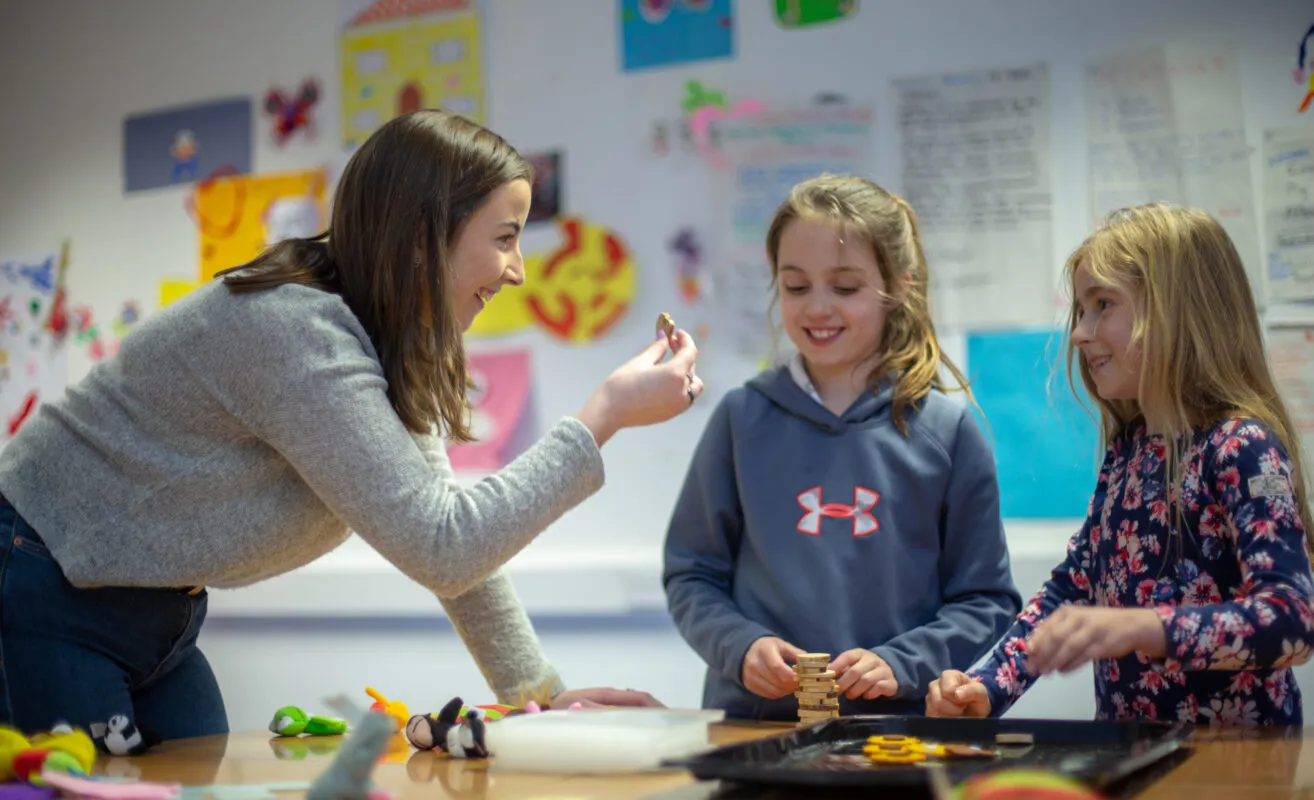Courses
Admissions & Support
Course Search
Courses
Admissions & Support
Course Search
Our Services
Our Community
Course Search
Governance
Professional Services
Status: Accepting Applications
Location: Moylish, Limerick City / Clare Street, Limerick City / George’s Quay, Limerick City
Fees: EU Fees: €7,000; Non-EU Fees: €14,500

The Master of Arts in Early Intervention and Inclusive Practice for Children is a pioneering programme designed to provide postgraduate-level study for those who wish to enhance their knowledge, skills and competencies in working with children (Birth – 12 years) from diverse backgrounds who experience adversity and a resultant inability to meaningfully participate in their education.
This adversity may result from various sources, including but not limited to disability, additional learning needs (ALN), poverty, parental substance abuse, and social/emotional disturbance. Irrespective of the source, childhood adversity and the subsequent need for early intervention to support inclusive practice is an area of widespread interest that reaches far beyond Ireland. Therefore, this master’s degree will appeal to national and international graduates.
The overarching aim of this programme is to equip students with the skills, knowledge and competencies required to successfully support inclusion of all children experiencing challenges within their learning and development.
The key features of this master’s programme have been designed to evaluate the evolving international theoretical frameworks, policies and varied research in relation to Early Intervention and to explore its links to supporting the inclusion of children and their families. The key features of these programmes will be discussed throughout the document but can be summarised as:
The modules within the Master of Arts in Early Intervention and Inclusive Practice will take the students through the skills, knowledge and competencies required to support inclusion through early intervention and to reflect on the complexities and adversities that may impact the development of children. Throughout their year of study students will complete four modules per semester with a summer dedicated to the writing of their final dissertation which will be action-based research.
Students can potentially access funding through SUSI.
Part time – One day a week for 2 years as per the academic Calander
Full time – Two days a week for 1 year as per the academic Calander
Ashling Sheehan Boyle
Email: ashling.sheehanboyle@tus.ie
Dr. Craig Coffey
Email: craig.coffey@tus.ie
The programmes entry requirements for Level 8 (2.2) in cognate discipline. RPL including– application form, mature applications.
Students can also apply through the TUS RPL process: Recognition of Prior Learning – TUS
Classes on this course may take place across a number of our Limerick city locations.
Historical & Contemporary Perspectives Of Inclusion
Credits: 5
Early Intervention Through Physical Education
Credits: 10
Therapeutic & Creative Play Skills
Credits: 10
Wellbeing and Professional Development
Adversity Trauma & Resilience
Credits: 5
Strategies for early intervention and practices
Credits: 10
Positive Behaviour Strategies & Child Development
Credits: 10
Applied Research Methods
Credits: 5
Early Intervention And Inclusive Practice Research Project
Credits: 30
Master of Arts in Early Intervention and Inclusive Practice graduates may find work in the private and public sectors nationally and locally. Settings include but are not limited to ELC & SAC settings, Primary Schools, Government departments and agencies including but not limited to DCEDIY, NCCA, Pobal, Tusla, Better Start (Area based Childhood, Family Resource Centres, Family Support services, youth work other agencies such as Enable Ireland, Coolmine , youth services Therapeutic Community, City and county-based Early Intervention Services.
Students may find opportunities to work in the UK and other European countries on targeted early intervention programmes. Students could potentially source employment with statutory, non- statutory or charitable organizations. The programme will provide the students with relevant research skills to explore specific national and interactional policy and practice.
Upon successful completion of this programme, graduates have the opportunity to complete Level 9/10 programmes here at TUS or elsewhere.